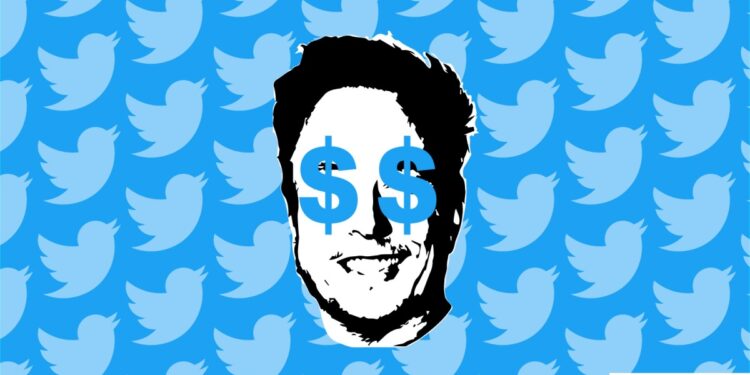Just days after newly minted Twitter CEO Elon Musk floated changes to Twitter’s system for verifying user accounts, including charging $8 per month for the privilege, Twitter appears to have begun rolling out a new tier of Twitter Blue, its premium subscription service, that reflects some of the changes that Musk has proposed.
According to an in-app iOS notification viewed by TechCrunch, the upgraded Twitter Blue, starting at $7.99 per month, will add the blue verification checkmark previously reserved for accounts that applied through Twitter’s free verification process. Other benefits include “half the ads” seen by non-paying Twitter users as well as ostensibly “twice as relevant” ads, and the ability to post longer videos to Twitter (although it’s not clear just how long; the notification doesn’t specify).
The new, pricier Twitter Blue will also offer priority ranking for “quality content,” promising to boost subscribers’ visibility in replies, mentions, and search. Twitter’s making the claim that this will help “lower the visibility of scams, spam, and bots,” but time will tell whether that’s truly the case.
Available in the U.S., Canada, Australia, New Zealand, and the U.K. on iOS to start, the new Twitter Blue arrives after mass layoffs at Twitter affecting roughly half of the company’s staff, including employees on key human rights, accessibility, AI ethics and curation teams. Musk has claimed that the cuts — along with the introduction of new paid features — are necessary to bring Twitter to profitability, as the company faces an estimated $1 billion a year in interest payments on $13 billion in debt.
Musk’s management of Twitter doesn’t appear to have instilled much confidence in major advertisers, however, many of whom have paused campaigns on the platform. In a tweet on Friday, Musk blamed a “massive drop” in Twitter revenue on “activist groups pressuring advertisers,” likely referring to an open letter sent Tuesday by civil society organizations urging Twitter advertisers to suspend their ads if Musk didn’t commit to enforcing safety standards and community guidelines.





